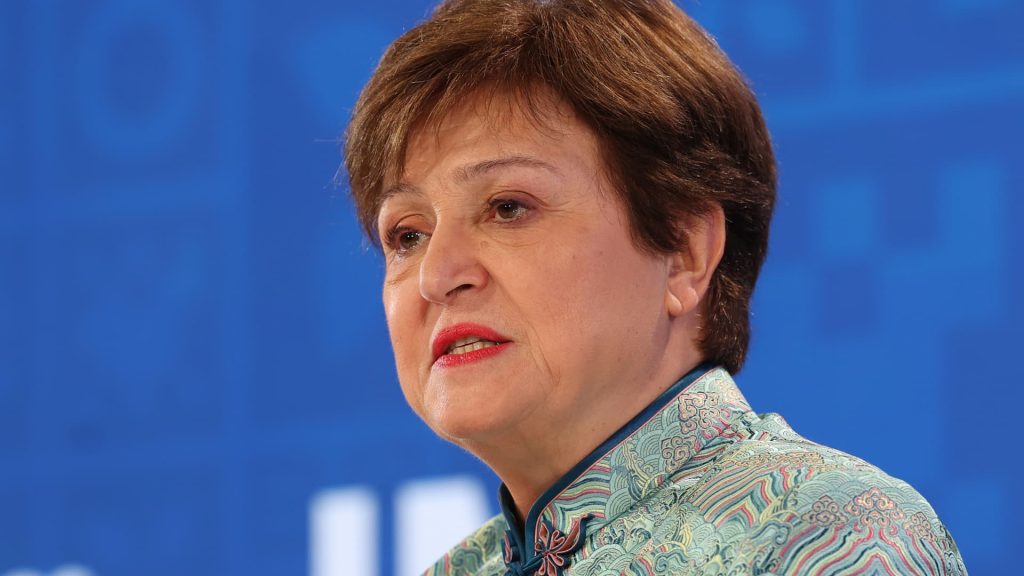The head of the International Monetary Fund warned the Russian economy is still facing significant headwinds despite receiving a recent growth upgrade by the Washington-based institution.
Russia’s economy has proven to be surprisingly resilient amid waves of Western sanctions in the nearly two years since it launched its full-scale invasion of Ukraine.
In late January, the International Monetary Fund more than doubled its forecast for the pace of the country’s economic growth this year, raising it from 1.1% in October to 2.6%.
Despite this, IMF Managing Director Kristalina Georgieva sees more trouble ahead for the country of roughly 145 million.
Speaking to CNBC’s Dan Murphy at the World Governments Summit in Dubai, Georgieva described what she believed was fueling Russia’s growth and why the forecast figure does not tell the full story.
“What it tells us is that this is a war economy in which the state — which let’s remember, had a very sizeable buffer, built over many years of fiscal discipline — is investing in this war economy. If you look at Russia, today, production goes up, [for the] military, [and] consumption goes down. And that is pretty much what the Soviet Union used to look like. High level of production, low level of consumption.”
Russian defense spending has skyrocketed since the war began. Last November, Russian President Vladimir Putin approved a state budget that increased military spending to roughly 30% of fiscal expenditure, amounting to a nearly 70% rise from 2023 to 2024.
Defense and security spending is expected to comprise some 40% of Russia’s total budget spending this year, according to analysis by Reuters.
At the same time, however, more than 800,000 people have left Russia, according to estimates by exiled academics compiled last October. Many among those who fled are highly skilled workers in fields like IT and sciences.
“I actually think that the Russian economy is in for very tough times because of the outflow of people, and because of the reduced access to technology that comes with the sanctions,” Georgieva said.
“So although this number looks like a good number, there is a bigger story behind that, and it’s not a very good story.”
Read the full article here
